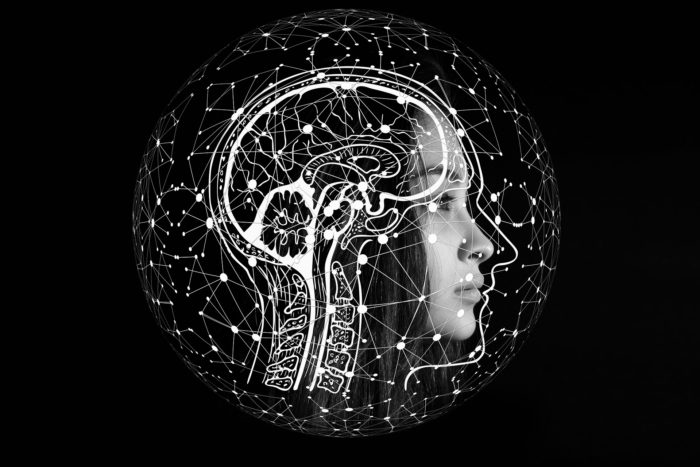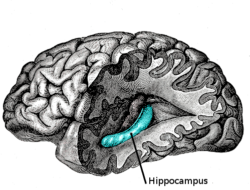 As you age, it’s easy to think that the sharpest, most clear-headed phase of your life is in the past. But numerous studies show that neurons continue to regenerate in adults. In 2013, researchers at the Karolinska Institute in Sweden found that 700 new neurons are formed each day in the hippocampus of adult humans. It’s worth it, then, to help nurture your brain regeneration—also known as neurogenesis.
As you age, it’s easy to think that the sharpest, most clear-headed phase of your life is in the past. But numerous studies show that neurons continue to regenerate in adults. In 2013, researchers at the Karolinska Institute in Sweden found that 700 new neurons are formed each day in the hippocampus of adult humans. It’s worth it, then, to help nurture your brain regeneration—also known as neurogenesis.
Neurogenesis and the Hippocampus:
The beautiful part of our brain responsible for learning and memory, the hippocampus also has the ability to grow new neurons (aka neurogenesis). Recent studies have outlined which lifestyle factors can promote neurogenesis…and which inhibit it.
For those of us wanting to sprout as many neurons as possible, here are the things to both avoid and increase in our lifestyle.
Let’s end on a positive note, shall we?

What to Avoid:
Sleep deprivation
- Beauty sleep? Try brainy sleep. Experts say to aim for at least 7-8 hours a night. A lack of sleep has been shown to inhibit neurogenesis, negatively impacting memory and mood functioning.
- Our brain needs to detox just like the rest of our body. The glymphatic system clears waste and toxins that could lead to brain disorders (i.e Alzheimers). And guess what? The glymphatic system is 10x more active when we sleep.
Stress
- I hate to stress about stress…but know that stress is harmful for brain health. Studies show that stress decreases the rate of neurogenesis. Recurring stress reduces the “firing power” of the hippocampus over time. Of course, eliminating stress in our lives is easier said than done. Check out this article for tips to alleviate stress in your life and read the section below about how meditation can help.
Poor Diet
- Nutritional deficiencies associated with inhibited neurogenesis:
- Vitamin E deficiency
- High sugar
- High saturated fat
- Vitamin B deficiency
- Vitamin A deficiency
- Ethanol (alcohol)
What to Increase:
Sufficient sleep
- The earlier paragraph says it all. Here’s the tl:dr (too long, didn’t read): sleep at least 7-8 hours a night. Your brain will repay your kindness through improved service to you.
Exercise
- Exercise is powerful for brain health. Its effects include improved cognitive functioning, mood, memory, learning capabilities, and brain plasticity (brain growth). The reason that exercise is so profound for our brain is because it promotes neuronal growth in the hippocampus. Exercise comes in many forms…walking, dancing, running, yoga, playing sports. Find something that moves you, and then move it! (This is really just a PSA to myself right now).
Sex
- Orgasm anyone? Turns out, (healthy) sex is good for us inside and out. One study found that sexual experience promoted neurogenesis. The same study also found that sex reduced cortisol levels. Cortisol is the stress hormone that triggers stress, which we know inhibits neurogenesis. So get your thang on. Partner optional.
Learning
- Learning → neurogenesis → more learning. What an interesting cycle: learning may promote neurogenesis, which in turn can help us learn more. Recent findings have demonstrated this connection. Learning can also increase neuronal survival by literally “using or losing” neurons.
- So what qualifies as “learning”? Reading, learning a new subject, or perhaps losing access to GPS and having to find your way home…
Meditation
- Meditation has been strongly linked to higher brain functioning and intelligence. A 2011 Harvard study found that meditation increases brain volume and gray matter in the frontal cortex (gray matter is linked to memory and decision making). The same study also found increases in hippocampus size after participants meditated for 30 minutes a day for 8 weeks. Other studies have also shown that our brain waves become more coherent when we meditate. Ohhmm-mygod.
Diet
- What to incorporate into our diet to support neurogenesis:
- Resveratrol
- Peanuts, pistachios, grapes, blueberries, cranberries, and dark chocolate
- Omega 3 fatty acids
- Seaweed, algae, chia seeds, hemp seeds, flaxseeds, walnuts, edamame, kidney beans, and soybean oil
- Folic acid
- Leafy green vegetables, citrus fruits, beans, bread, cereals, rice, and pasta
- Zinc
- Beans, nutritional yeast, oats, nuts, seeds, and wheat germ
- Flavonoids
- Teas, berries, dark chocolate, grapes, apples, citrus fruit, onions, scallions, kale, broccoli, parsley, thyme, celery, hot peppers, soybeans, soy foods, and legumes
- Curcumin
- Turmeric (combine with black pepper for extra-potency)
- Resveratrol
Which of the above lifestyle decisions do you already implement? Which ones would you like to implement?
I Quit Drinking 4 Years Ago To Save My Skin—Why You May Want To Do The Same
Get more like this—Sign up for our daily inspirational newsletter for exclusive content!




